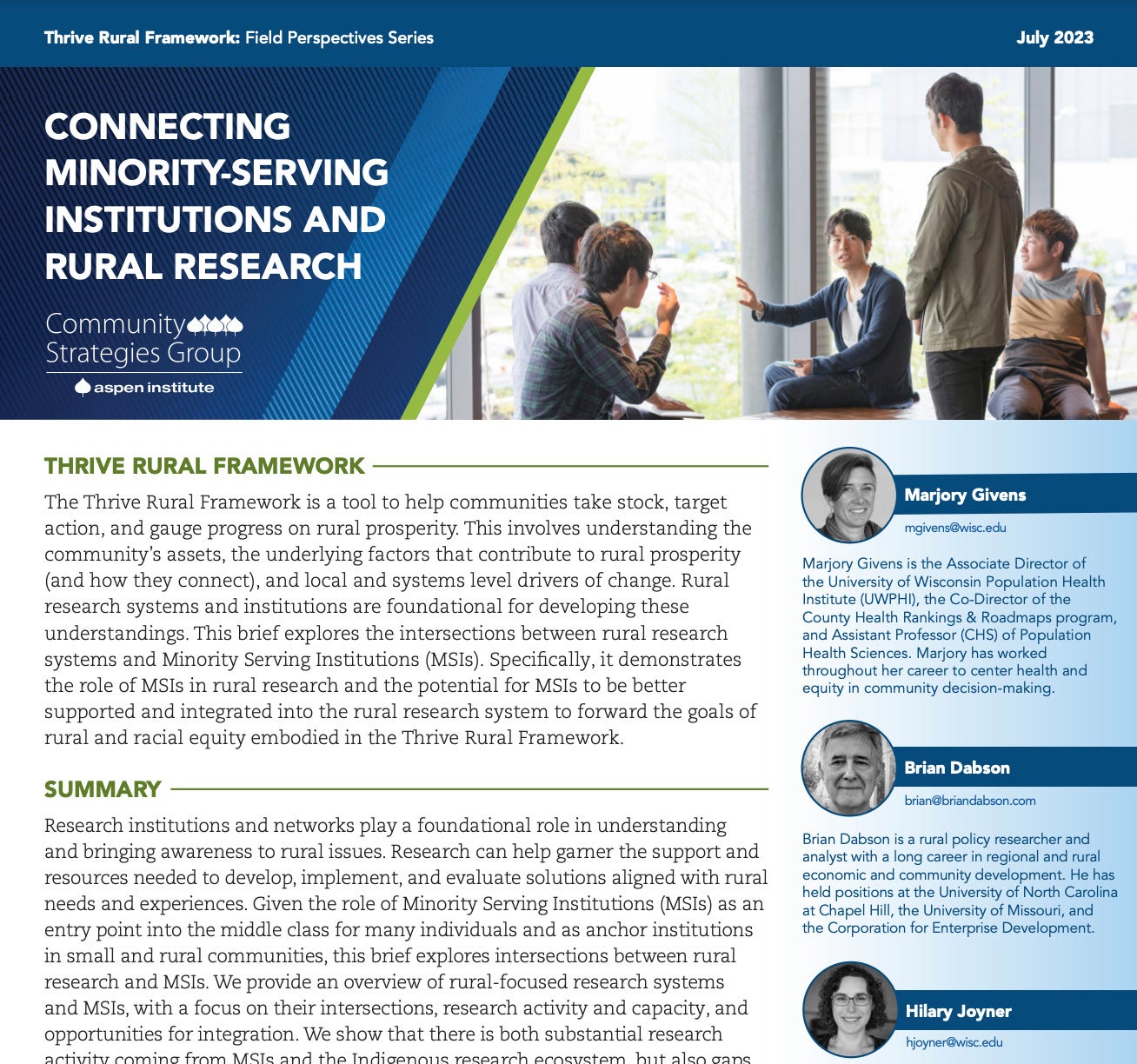Above, watch Ford Foundation President Darren Walker accept the Aspen Institute 2015 Preston Robert Tisch Award in Civic Leadership and join Aspen Institute President and CEO Walter Isaacson in conversation.
Darren Walker is president of the Ford Foundation, a global organization that works to reduce poverty and injustice, strengthen democratic values, promote international cooperation, and advance human achievement. Walker is also the 2015 recipient of the Preston Robert Tisch Award in Civic Leadership, which honors those making strides within the philanthropic community.
Below, Walker explains the three traits necessary in a modern leader.
The process of becoming a leader never stops. It’s ongoing — and it hinges on three fundamental obligations: listening, communicating, and acting as your most authentic self.
I spent much of my first year as president of the Ford Foundation meeting with and learning from our colleagues, partners and grantees. Conversations from Detroit to Delhi gave me a new perspective on the importance of local context. Some grantees stressed the need for general support, while others expressed dismay about a lack of funding for overhead. All of these issues became incorporated into what we call FordForward, our ongoing renewal — but our leadership team could not have understood their complexities and universality without opening our eyes and ears more than our mouths.
Of equal importance to listening is communication. If we don’t give our colleagues a clear understanding of our vision, they will be unable to contribute to its success. To this end, throughout my tenure, I’ve written a series of letters in which I’ve attempted to be as transparent as possible, and to invite discussion rather than impose dictates.
Yet, I’m all too aware that transparency and communication is a two-way street. It is not enough to disseminate information; effective leaders must also welcome and internalize feedback, even if it’s hard to hear.
Among every leader’s greatest vulnerabilities is isolation. Imbalanced power dynamics prevent tough feedback or bad news from flowing upward, but leaders need to hear it.
For my part, I want candid feedback, even when it’s that I’m doing something wrong, or that I need to course correct. And this is why, at the Ford Foundation, we are fostering an environment in which people can be candid and straightforward, where they feel their criticism — even when unpleasant — has been heard and respected. This is an environment in which we assume that everyone shares the best intentions, and so we’re unafraid to challenge each other’s ideas without impugning each other’s motives.
Of course, none of this matters without authenticity.
According to the Edelman Trust Barometer, public trust in institutions and leaders has eroded around the world. It’s clear to me that much of that distrust stems from a lack of authenticity. In general, people just do not believe what their leaders say publicly is what they actually do in managing their own enterprise.
Too often, dynamic leaders adopt safe public stances, rather than speaking honestly and from their relatable experiences. I have found that leaders are more effective when they reveal their humanity and vulnerability in service of their missions. In turn, it’s imperative we find our most authentic voices — and that we grow comfortable using them to say what we mean.
Ultimately, leadership is a human enterprise. To effectively fulfill our organization’s mission, leaders must open themselves up to criticism, to feedback, to scrutiny, and to new ideas. It demands that we pay attention to and connect with the people we work with, and we show who we are in the process. Not all people are leaders, but the best leaders — first and foremost — are real people.

